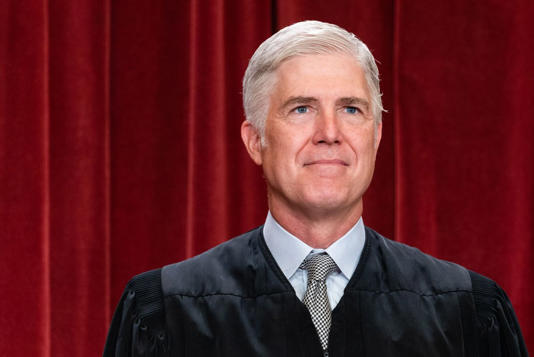Supreme Court Justice Neil Gorsuch recused himself from an upcoming environmental case scheduled for next week after reviewing the current ethics code, according to a letter sent to attorneys involved in the case.
The brief letter dated Wednesday from law clerk Scott S. Harris was posted on the Supreme Court website.
"I am writing to inform you that, consistent with the Code of Conduct for Justices of the Supreme Court of the United States, Justice Gorsuch has determined that he will not continue to participate in this case," Harris wrote.
The case is Seven County Infrastructure Coalition vs. Eagle County, Colo.
Rep. Hank Johnson, D-Ga., who wrote a letter signed by other House Democrats urging Gorsuch's recusal, hailed the decision to recuse.
"I applaud Justice Gorsuch for doing the right and honorable thing," Johnson said in a statement. "It is important that the court show the public that it is not in the pocket of billionaire benefactors."
Thirteen House Democrats signed the letter Johnson wrote Gorsuch on Nov. 20 urging him to recuse himself from the case.
"Recent reporting exposed that you have a serious and obvious conflict of interest that demands your recusal," the letter said. "In your prior career as a corporate lawyer, you were the long-time attorney for Denver-based billionaire Philip F. Anschutz and his network of companies for many years."
The Democratic House members said Anschutz "has a direct financial interest in the outcome of Seven County Infrastructure Coalition v. Eagle County, Colo."
...
Rep. Hank Johnson, D-Ga., who wrote the letter signed by other House Democrats urging Gorsuch's recusal, hailed the decision to recuse.
"I applaud Justice Gorsuch for doing the right and honorable thing," Johnson said in a statement. "It is important that the court show the public that it is not in the pocket of billionaire benefactors."
The other Supreme Court Justices will hear oral arguments in the case Tuesday.
At issue in the case is whether environmental impacts of oil production should be considered when deciding to build a railway line for oil transportation in Utah.
Read more:


















